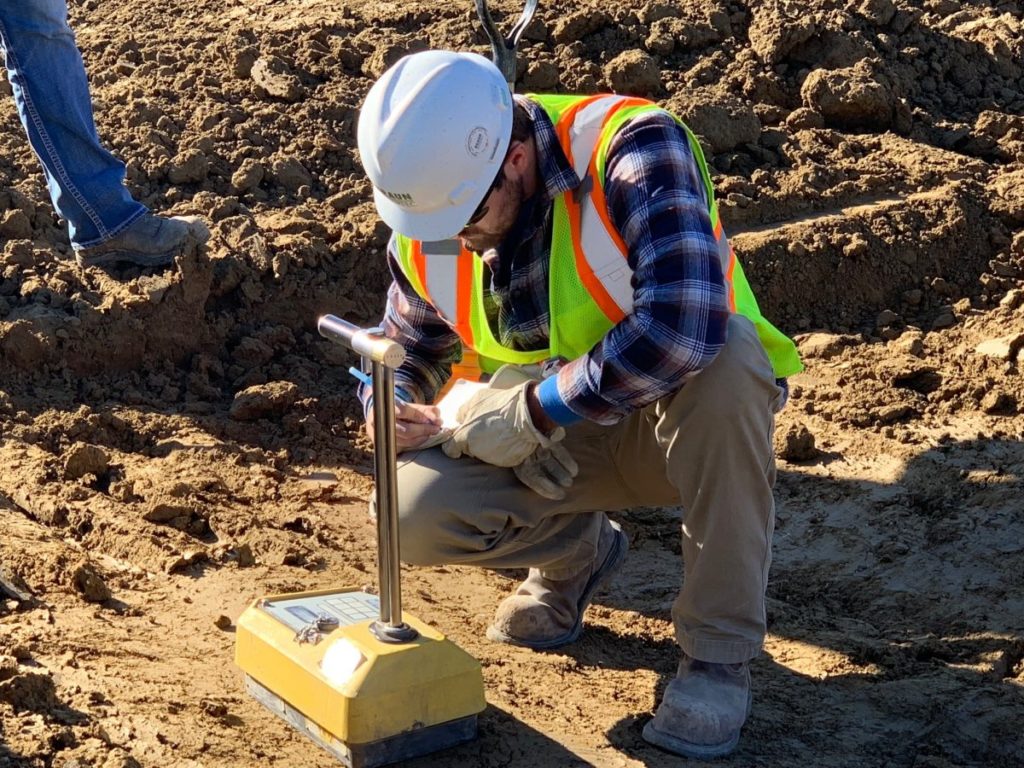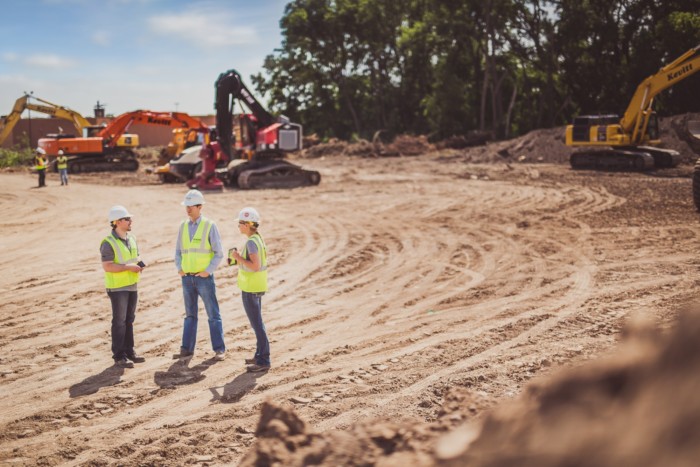What is a construction materials testing technician?
A construction materials testing (CMT) technician performs a variety of tests and inspections on construction materials such as soils, deep foundations, concrete, asphalt
But what does a normal day look like for these technicians? While CMT technician responsibilities can vary greatly, we’ll do our best to answer that question and cover some of the basics.
What does a typical day look like?
A CMT technician’s typical responsibilities include testing soils and concrete on construction sites. The work environment changes daily as construction progresses, weather fluctuates, and terrain varies from site to site. A CMT technician’s role is critical to the construction industry as the tests they perform help to evaluate the contractor’s conformance with the plans and specifications that engineers use to communicate their design.
Concrete Testing
One of the primary responsibilities of a CMT technician is concrete testing. Placing concrete is always an exciting time on a project as thousands of dollars of heavy concrete must be placed within an hour before it starts to harden. Performing these tests and communicating the results is an important part of any project. Check out our video above to see one of our technicians performing concrete testing.

After collecting a sample of concrete, CMT technicians then perform a series of tests. First, they will check the temperature of the concrete followed by an air content test. The air content test is used to evaluate microscopic air bubbles in the concrete that give it freeze-thaw resistance and other important properties. Too much air may indicate unintended reactions that may cause the concrete to lose strength. Next, they will perform the concrete slump test, which measures the consistency of the concrete. Finally, strength samples will be made and after curing in the field, hardened samples are then returned to a laboratory for storage until they are ready to test.
Compaction Testing
Another typical responsibility for CMT technicians is performing compaction tests on the soils contractors put in place to support buildings and pavements. Projects are only successful if the proper materials are placed at the appropriate moisture and sufficiently compacted. Testing soil compaction is an important quality check on the contractor’s work.

When performing a compaction test, technicians first need to prepare the area for the test, then they will use a nuclear density gauge to evaluate the density and moisture content of the soil in the field. After comparing the soil tested to previously collected and tested samples, a CMT technician can then evaluate how effective the contractor was in compacting the soils. Recording the test results and communicating them to the contractor and the rest of the project team completes the process.
What opportunities are there for CMT technicians?
There are many different career opportunities for CMT technicians and it’s a great way to get your foot in the door to the construction industry. At Braun
For more information on CMT technician opportunities at Braun Intertec, click the button below.
